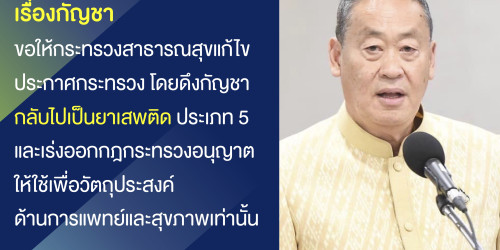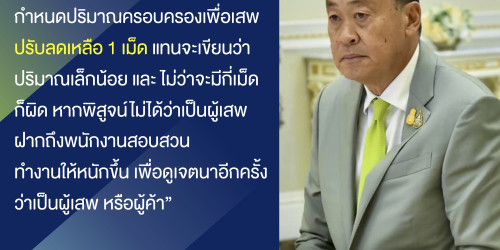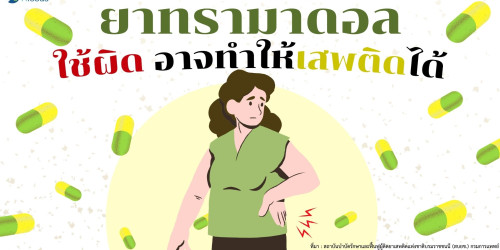Is a new agency key to a better public health system? Thailand's public health system is set to undergo reform - perhaps for the better, or perhaps for the worse. It depends on how one looks at it, and how the final outcome turns out.
In the eyes of critics, the Public Health Ministry is simply seeking to control independent organisations like the Thai Health Promotion Foundation (THAI Health) and the National Health Security Office (NHSO), as well as their massive budgets.
In the eyes of supporters, the Public Health Ministry has the good intent of keeping these powerful independent bodies in check and ensuring their budget is efficiently spent.
If Public Health Minister Pradit Sinthawanarong gets his way, a National Health Authority (NHA) will be established to formulate health policies and review budget plans of the five independent health agencies.
These agencies are THAI Health, the NHSO, the Emergency Medical Institute of Thailand, the National Health Commission Office (NHCO), and the Health System Research Institute.
Of these agencies, the NHSO has received the biggest budget, about Bt145 billion a year.
The massive budget, however, comes with a huge duty - to implement the universal healthcare scheme. About 49 million Thais are able to receive free treatment under this scheme.
All state hospitals participate in the universal healthcare scheme.
Today, the NHSO receives a flat subsidy rate of Bt2,755 per head per year. This amount is carefully divided into various portions to ensure that the NHSO and the universal healthcare scheme function for public benefit.
The NHSO has used a large part of this amount to pay for about 60 per cent of the salaries of doctors, nurses and medical workers at state hospitals. The remaining 40 per cent is covered by the Public Health Ministry.
Pradit has now pushed for change in this budget too. He has said it will be redundant to move budget here and there, when in fact funds for the salaries of medical workers can be allocated to the NHSO in full from the very beginning.
Critics, however, have expressed concern that the NHSO may find it difficult to get this additional budget - even if the Public Health Ministry stops partially paying for the medical workers.
Will the NHSO get a higher subsidy rate per head? If not, it will face budget constraints in financing the universal healthcare scheme.
Critics have also pointed out that if the NHA is established, political-office holders will have control over independent agencies in the public-health sector.
Their independence, designed for them by the so-called "People's Constitution" drawn up in 1997, will be endangered. Thanks to the constitutional stipulations, these independent agencies have laws to support their operations. Neither political-office holders nor the government can appoint their boards.
Their board members, though they include former officials, are mostly representatives of the people's sector or non-government organisations, as well as academics.
NHCO board member Wichai Chokewiwat commented recently that he sees no need for public-health reform for the time being.
But the head of the Rural Doctors' Society, Dr Kriengsak Watcharanukulkiat, suspected that the planned reform was in fact designed to allow the ministry to interfere in these independent organisations.
"The National Health Authority will be the representatives of the Public Health Ministry. If the independent organisations must be under the NHA, then they are under the Public Health Ministry," Kriengsak commented.
"These agencies will then become unable to freely formulate policies because approval must be subject to the scrutiny of the NHA".
New body a threat to status quo: Jon
Jon Ungpakorn, the former senator now speaking on behalf of a non-government organisation, said Pradit's ulterior motive was evident soon after he rose to the helm of the Public Health Ministry last year, when he created two executive posts in the NHSO.
The posts have finally gone to Dr Atthasit Kanjanisit, a former Thai Rak Thai MP and a former secretary-general of the Asean Inter-Parliamentary Organisation, and Dr Samrit Srithamrongsawas, director of the Health Insurance System Research Office.
Jon said the political interference would be a serious threat to Thailand's public-health system.
He said if such interference was allowed, the budget would likely be used to fulfil politicians' projects rather than measures that were in the public's best interest.
"The modern healthcare system must engage public participation. It must not be something the government can handle any way it likes," Jon said.
He noted that the NHSO was the buyer of public-health services and the Public Health Minister was the seller in the universal healthcare scheme - so, they should stay independent of each other.
"If the Public Health Ministry has a say in the NHSO, it can change the buyer's policy. This is worrying," Jon said.
Aids activist Supatra Nakaphiew was also worried that the Public Health Ministry would try to centralise power over the provision of public health.
Despite growing criticism, Pradit and the Public Health Ministry have shown no signs of backtracking.
Today, the NHSO board will be asked to consider the plan for the NHSO to fully pay for the salary of medical workers at state hospitals.
Whether this is for better or for worse, people will soon find out.
Source: The Nation March 25, 2013
- 2 views








